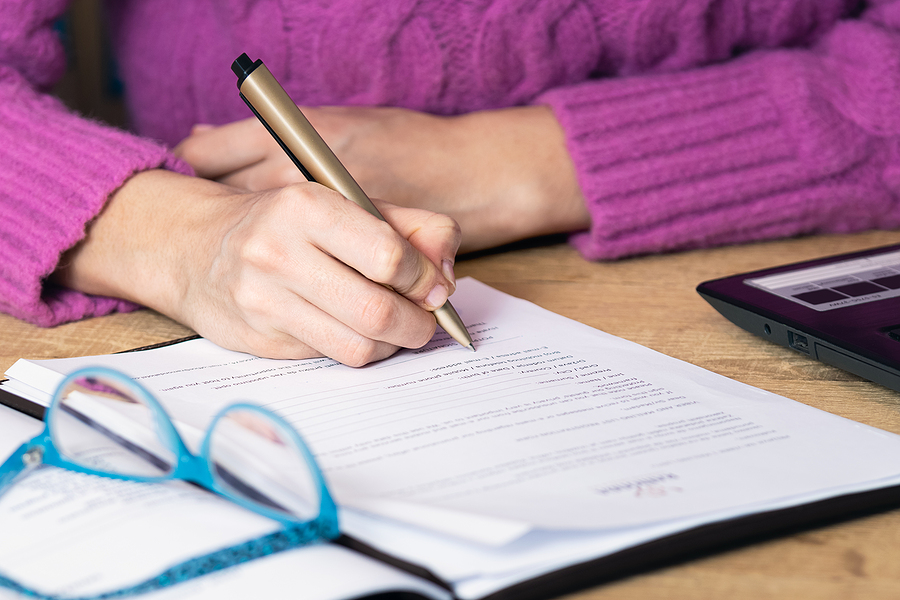
A deposition is part of the discovery phase of a car accident case. In some cases, attorneys could use depositions and other discovery before negotiating a settlement. A deposition is sworn testimony that is taken outside of a courtroom. Attorneys might hold depositions in the office of counsel for the plaintiff or defendant or in a conference room at the deposition company’s office.
If you suffer from injuries because of a car accident, or if you lost a loved one in a car accident, contact a car accident lawyer for a free consultation to learn more about your rights and the settlement and/or litigation process to recover fair compensation for your injuries.
The Basics of a Car Accident Case
When you first contact a car accident attorney, you have two major choices to make: Whether you want to try to settle, or you want or need to litigate. You do not have to make that decision on your own.
The Initial Consultation
When you come in for an initial consultation, a car accident lawyer will discuss your case with you and advise whether you should attempt to settle or go straight to litigation. This is a recommendation only; you get to choose. Your car accident lawyer can give you the information you need to make that decision.
Car accident cases vary, which means the strategy for each case is different. Factors in play include whether the defendant is a commercial driver and whether the defendant’s actions were grossly negligent or intentional.
Your car accident lawyer can also explain which documents you need and help you get those documents, including sending subpoenas if needed.
Settling
After your car accident lawyer reviews your case and your medical records, he or she would work with you to determine a fair and reasonable settlement amount. Once you agree upon a number, Your car accident lawyer would then send a demand letter to the defendant’s insurance company or the defendant via his or her counsel.
If your car accident lawyer needs more information, or if the insurance company or the defendant’s counsel believes that they need more information, depositions will take place. We may gather additional evidence through investigations, interrogatories, requests for admission, and other discovery methods.
Once both attorneys believe that they have all of the information needed, settlement negotiations may resume. Once settlement negotiations resume, you have the right to decline any settlement offer the insurance company and/or the defendant makes, just as they have the right to decline your request.
Litigation
If you do not think the insurance company’s offer is enough for what you have gone through, we would discuss litigation with you.
In short, the litigation process is:
- Filing a complaint on your behalf.
- Waiting for the insurance company to file responsive pleadings.
- If one of the parties needs additional discovery, including more depositions, we would complete the discovery phase initiated during the settlement phase.
- Whether you might collect punitive damages for gross negligence or intentional torts, and if you want to pursue punitive damages in addition to compensatory damages.
- Appointments with expert witnesses, including expert medical witnesses and accident scene investigators who might be expert witnesses.
- Both sides might file additional motions throughout the discovery phase.
Once the plaintiff and the defendant finish the discovery phase, which could include additional depositions, we might present the defendant with another settlement offer if you wish to do so as the plaintiff. If the defendant declines the offer or if the plaintiff does not want to take the time with an additional round of settlement negotiations, we would then schedule the trial.
What Happens in a Deposition?
A deposition is an attempt to procure additional evidence and facts surrounding the accident. Essentially, the defendant’s counsel would ask you questions about the accident. While we cannot help you answer the questions, we could intervene if we think a question is out of line. Before you start answering questions, you are sworn in under penalty of perjury.
The defendant’s counsel can ask you any questions related to the accident, your subsequent recovery, and on-going medical care for injuries you suffered in the accident. When we depose the defendant, we also ask the same types of questions.
Before the deposition, we make sure that we know all of the facts of the case. We also try to make sure you know what to expect. However, we do not know ahead of time what questions the defendant’s counsel will ask, nor will they know what we would ask when we depose the defendant.
Types of Depositions
Above, we spoke mainly of oral depositions used to discover more information about a case. An attorney could also request written depositions or request an oral or written deposition via a subpoena duces tecum. A party that receives a subpoena duces tecum must also provide the documents listed in the subpoena either before or at the deposition.
Attorneys also ask for depositions to preserve testimony if the attorney believes a witness will not be available to testify at a trial. As opposed to the open-ended questions in a deposition to learn more about the facts of the case, questions in a deposition to preserve testimony are narrow and close-ended. They consist of questions an attorney might ask at trial if the witness can testify.
Contact a Car Accident Lawyer Near You
Accident cases are often complex, especially when the insurance company refuses to fairly and reasonably compensate you for your injuries or the loss of a loved one. A car accident attorney could help you through the legal hurdles of obtaining a fair settlement or litigating against the defendant for the compensation you deserve.



